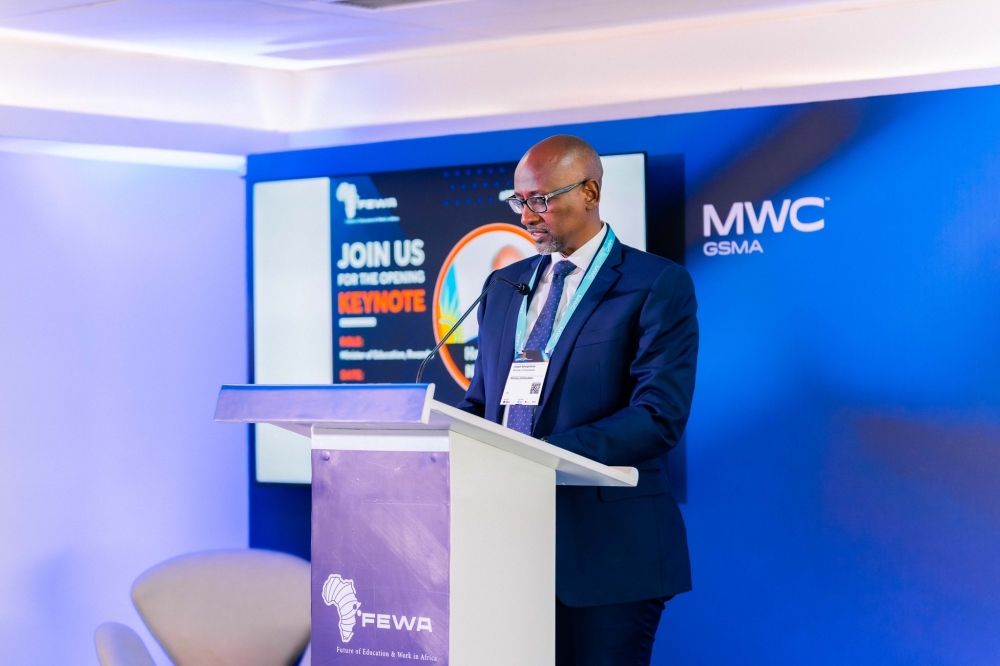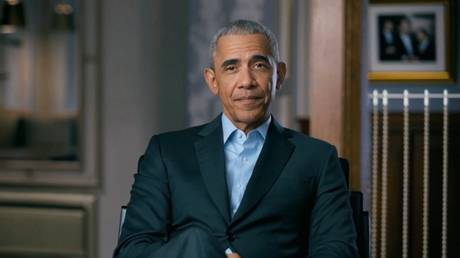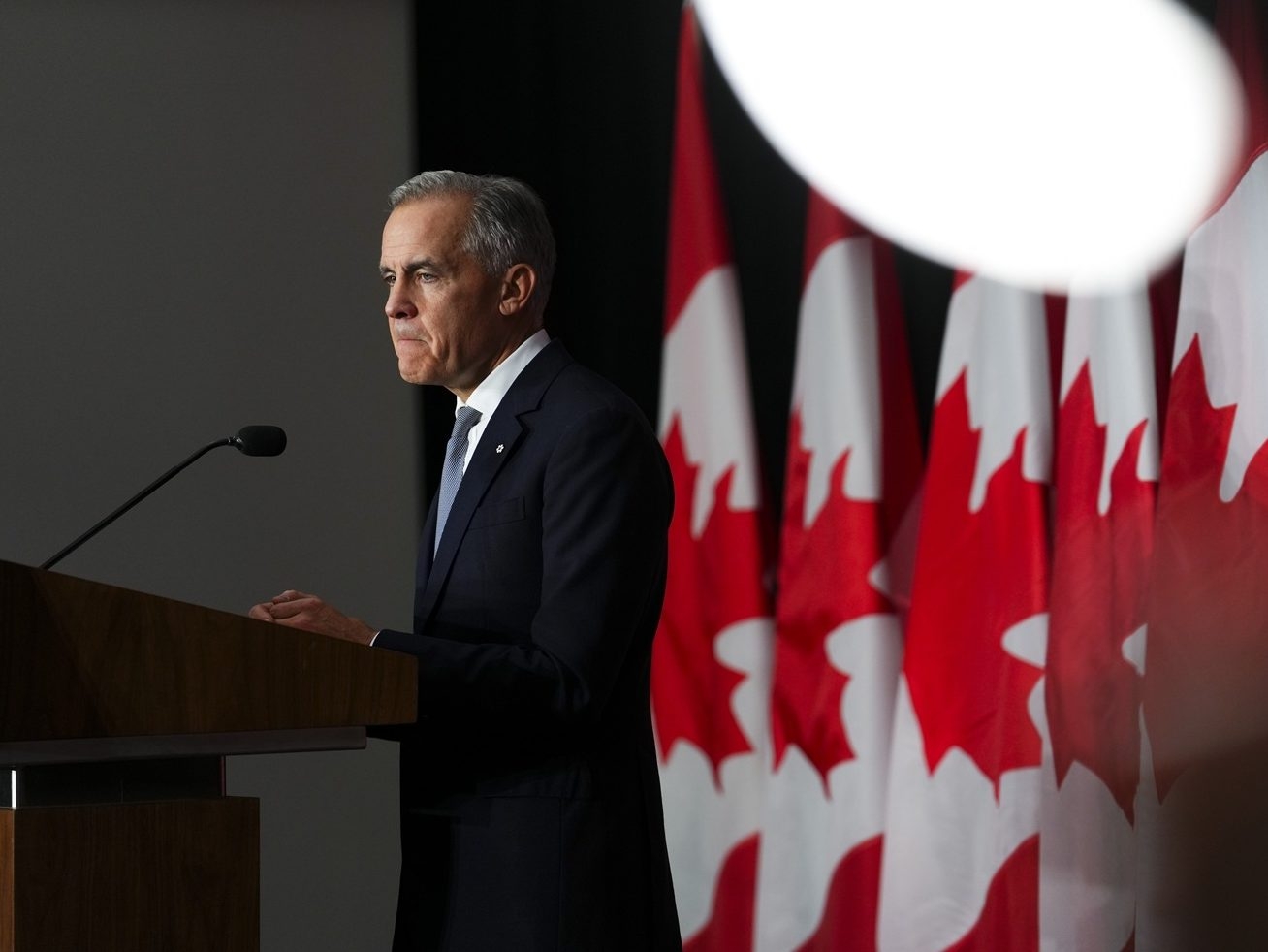Artificial Intelligence (AI) is increasingly reshaping learning and working, and Rwanda is positioning itself to be among Africa’s frontrunners in using it to transform education.
During the Future of Education and Work in Africa (FEWA) AI Summit, held on October 23 at Kigali Convention Centre alongside the Mobile World Congress (MWC) Africa 2025, education leaders and innovators discussed how AI could revolutionize learning and teaching across the continent.
Speaking at the summit, the Minister of Education Joseph Nsengimana emphasized that Rwanda views AI as a tool to enhance education rather than replace the human element in classrooms. He noted that the country has already embarked on a journey to integrate AI in schools as part of efforts to transform teaching and learning and deliver quality education.
ALSO READ: How AI integration could transform education
“When a teacher has 30 or 40 students, it is manageable. But when that number rises to 70 or 80, it becomes difficult to give each learner individual attention,” Nsengimana said. “AI helps teachers to evaluate and follow up with students individually, adapt their teaching styles, and improve learning outcomes.”
According to the minister, integrating AI into Rwanda’s education system is already underway. Teachers are being trained to understand how AI works, why it matters, and how it can be applied in classrooms.
“So far, we have trained 150 teachers, five from each district, who will, in turn, train their colleagues,” he noted. “By next academic year, AI will begin to be used in schools.”
ALSO READ: When is the right time to expose children to AI?
Nsengimana added that successful AI adoption requires collaboration between the Ministry of Education and the Ministry of ICT and Innovation, particularly in expanding access to computers, digital tools, and reliable connectivity in schools.
Rwanda as an AI Hub
Titus Ngatia, Founder and CEO of FEWA, said that Kigali was a natural choice to host the AI conference because of its growing reputation as a continental hub for technology and innovation.
“Unless you are a newcomer in town, everyone knows Kigali is fast becoming the capital for artificial intelligence and tech discussions in Africa,” Ngatia said. “It was a no-brainer for us to introduce an education-focused segment during Mobile World Congress, because connectivity and innovation should ultimately serve schools and learners.”
Ngatia highlighted that integrating AI into Africa’s education systems requires rethinking curricula to make AI a central theme rather than an afterthought.
“We should not have students graduating only to start learning about AI later,” he said. “AI should be embedded into daily learning so that students grow up understanding how it shapes their world.”
He also stressed the importance of maintaining African values in the age of technology.
“We must keep human beings at the centre of innovation,” he said. “Technology should never strip away our identity or values.”
Bridging the digital divide
Minister Nsengimana warned that the continent’s youthful population -- over 60 percent of Africans are under 25 -- presents both an opportunity and a challenge.
“This demographic dividend can fuel innovation and growth, but only if our education and workforce systems keep pace with technology,” he said. “If we fail to bridge the gap, the digital divide will become a learning divide, and, eventually, an economic divide.”
The minister outlined Rwanda’s strategy for building an “AI-ready learning ecosystem,” guided by Vision 2050 and the National Strategy for Transformation (NST2).
“Our approach rests on three pillars: readiness, relevance, and reach,” he said. “We’ve launched nationwide AI literacy training for teachers in partnership with MIT RAISE and other institutions. We’re also piloting AI-assisted lesson planning and assessment tools that help teachers align lessons with the national curriculum and analyze student performance in real time.”
He underscored that the goal is not to replace teachers but to empower them.
“If AI is to transform learning, it must first transform the experience of teaching,” he added.
A continental effort
Across Africa, several countries are making strides in integrating AI into education. Kenya’s National AI Strategy places education at the centre of digital transformation; Egypt is strengthening data governance in its AI agenda; Morocco is introducing AI and digital learning programs for children; and Ghana is expanding coding and robotics at the basic level.
“These efforts differ in approach but converge on a shared principle, AI for human development, grounded in ethics and evidence,” Nsengimana said.
The minister proposed five guiding principles for building Africa’s AI-era learning ecosystem, including pragmatism by focusing on classroom-ready AI tools that enhance teaching and learning, inclusion to ensure connectivity and digital capacity reach all learners, including those in rural areas.
He emphasized building trust by through strong data governance frameworks to protect privacy and ensure human oversight and employability through aligning education with the evolving world of work, as well as measurement by tracking learning gains and teaching quality, not just device distribution.
“The young people we serve will not judge us by our speeches but by whether their schools teach better, their teachers feel supported, and their employers find the skills they need,” he said. “Let Kigali be the place where Africa’s alignment in AI for education begins.”






